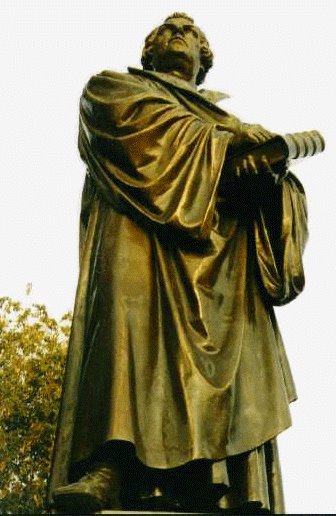03 February 2006
The Great Jesus Debates
 The preface to The Great Jesus Debates, by Douglas W. Johnson, has a quote which rather appropriately describes the contents of the book to follow:
The preface to The Great Jesus Debates, by Douglas W. Johnson, has a quote which rather appropriately describes the contents of the book to follow:
I am no expert historian — I merely play one on my blog — but this is a nice addition to my library of historical theology. What Johnson does is to trace through the four major theological battles in the early church, without getting too hung up on the technicalities, and show how in each case it was really a question of Jesus and His grace given to the Church.
The introduction sets the stage by giving background to who Jesus is, what grace is understood as being, who the Holy Spirit is, the interplay of Christianity and surrounding culture, and a brief background of Judaism, the Roman Empire, and Hellenism (Greek culture) of that day. In this way, he sets many of the overall structures in place on which the debates which are discussed rest.
The four key debates he discusses are:
As history books go, this one is fairly clearly written, and operating from its admitted bias of orthodox Christianity, explores in reasonable depth the key debates and struggles facing the early church. If you are a pastor, you likely already have several other books covering this same subject. But if you are a layperson, this book could be extremely useful indeed, summarizing as it does some of the more difficult, yet important details of the Church's teaching on Jesus Christ and His saving work for us.
The Great Jesus Debates
ISBN 0758608624
CPH, 2005
192 pp.
Recommended to anyone with an interest in theology.
Crossposted at A Beggar At The Table
Feedback
 The preface to The Great Jesus Debates, by Douglas W. Johnson, has a quote which rather appropriately describes the contents of the book to follow:
The preface to The Great Jesus Debates, by Douglas W. Johnson, has a quote which rather appropriately describes the contents of the book to follow:The debates within early Christianity are subtle yet hideously complex. It is hoped that by stripping them to their basic concerns we will be able to see in them important statements about God, the human condition, and questions of the Christian life and salvation with which we still struggle.For Johnson, the "red thread" of early Christendom which he sees as the hallmark of orthodox Christian teaching is the centrality of Jesus Christ — who He is and what He has done — and the grace of God, and what grace means for our forgiveness and reconciliation to God.
I am no expert historian — I merely play one on my blog — but this is a nice addition to my library of historical theology. What Johnson does is to trace through the four major theological battles in the early church, without getting too hung up on the technicalities, and show how in each case it was really a question of Jesus and His grace given to the Church.
The introduction sets the stage by giving background to who Jesus is, what grace is understood as being, who the Holy Spirit is, the interplay of Christianity and surrounding culture, and a brief background of Judaism, the Roman Empire, and Hellenism (Greek culture) of that day. In this way, he sets many of the overall structures in place on which the debates which are discussed rest.
The four key debates he discusses are:
- The Gnostic and Marcionite controversies — the question, "Is Jesus really man?" He discusses Irenaeus and his understanding of Jesus' person and work, including recapitulation theology.
- The Trinitarian Controversy — the question, "How can Jesus really be God?" In this section Johnson tackles modalism, Arianism, and other related topics. Special emphasis is given to Athanasius and the Cappadocian Fathers.
- The Christological Controversy — the question, "How can Jesus be both man and God?" In this section Nestorianism, Eutycheanism, and other such heresies are discussed and the Chalcedonian definition of Christ is explored.
- The Controversy over Grace — the question, "How does Jesus' person and work affect me?" In this section the debate over the nature of grace and the need for salvation, most notably that of Augustine and Pelagius, is examined in great depth.
As history books go, this one is fairly clearly written, and operating from its admitted bias of orthodox Christianity, explores in reasonable depth the key debates and struggles facing the early church. If you are a pastor, you likely already have several other books covering this same subject. But if you are a layperson, this book could be extremely useful indeed, summarizing as it does some of the more difficult, yet important details of the Church's teaching on Jesus Christ and His saving work for us.
The Great Jesus Debates
ISBN 0758608624
CPH, 2005
192 pp.
Recommended to anyone with an interest in theology.
Crossposted at A Beggar At The Table
Feedback
Comments:
<< Home
Good review of a good book which, unfortunately, ends with an incorrect verb tense in its last sentence.
Post a Comment
<< Home


